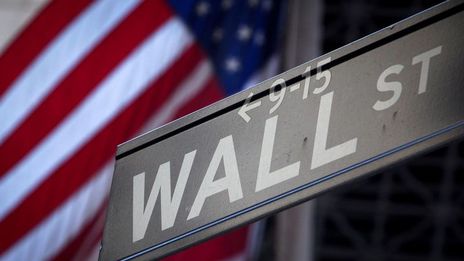By Sune Engel Rasmussen
The U.S. plans to designate the Iran-backed Houthis in Yemen as a foreign terrorist group, a move some Western officials and aid agencies said would impede stalled peace talks and hurt the economy of an impoverished nation at risk of famine.
Secretary of State Mike Pompeo said he intended to designate the Houthis and three of its leaders for the group's "terrorist acts, including cross-border attacks threatening civilian populations, infrastructure, and commercial shipping."
The designation, which will be implemented on Jan. 19, will "advance efforts to achieve a peaceful, sovereign, and united Yemen" free of Iranian influence, Mr. Pompeo said Sunday.
The Houthis said the U.S. designation would have military and economic consequences. "There will be an escalation from our side," said Mohammed al-Bukhaiti, a member of the group's political council. "This of course will derail the peace process brokered by the U.N."
The Houthis have been at war since 2015 with a Saudi Arabia-led coalition that backs Yemen's internationally recognized government. The coalition's campaign has killed thousands of civilians, destroyed infrastructure and exacerbated what the U.N. calls the world's worst humanitarian crisis.
The Houthis have responded to coalition strikes by firing missiles at Saudi territory, including its oil facilities, and conducting sabotage against oil tankers -- attacks that U.S. officials say are done at the behest of Tehran and involve Iranian weapons.
The inclusion of the Houthis on the State Department's list of foreign terrorist organizations will cut its fighters off from funds and material resources funneled through U.S. banks and financial institutions.
Western diplomats and aid officials working on Yemen said the designation would do little to squeeze the group's finances, as Iran, the militants' main sponsor, has continued supporting the rebels even under crippling sanctions.
The designation, to take effect one day before the inauguration of President-elect Joe Biden, is part of the Trump administration's campaign to curtail Iran's military footprint in the Middle East, after the U.S. withdrew from the 2015 international nuclear agreement with Iran and imposed sanctions on Tehran.
Mr. Pompeo met Saudi Crown Prince Mohammed bin Salman in November as part of U.S. efforts to normalize ties between the Gulf Arab states and Israel based on their common enmity with Iran.
Saudi Arabia's foreign ministry hailed the terror designation, saying it would "force the leaders of the Iranian-backed Houthi militia to return to the table for political consultations."
As President Trump's term approaches an end, his administration has imposed a raft of new sanctions on Iranian government entities and individuals. Last week it sanctioned an Iraqi paramilitary leader for his link to alleged abuses by Iran-backed militias.
Mr. Biden has said he would take a less confrontational approach to Iran and attempt to resurrect nuclear diplomacy. But the recent pileup of U.S. actions against Iran could force Mr. Biden to either maintain a tough line on Tehran or face possible political headwinds for rolling back the pressure.
"This is pure diplomatic vandalism," David Miliband, president and CEO of the International Rescue Committee, said of the Houthis' designation. "The further immiseration of Yemenis, which will be the product of this policy, is a disgrace to the name of the U.S., and will have the perverse result of strengthening precisely the forces it claims to oppose."
The Western officials working on Yemen said designating the group would complicate operations of aid groups working in the rebel-controlled capital, San'a, and northern Yemen, where approximately 70% of Yemenis live.
The move could also deal a severe blow to Yemen's economy, as foreign businesses will be hesitant to work with Yemeni traders and importers for fear of having their assets frozen. Yemen relies on imports for 80% of its food, according to the U.N.'s World Food Program. The Houthis control the port of Hodeidah, through which two-thirds of Yemen's imports enter the country.
U.N. Secretary-General António Guterres warned in November that Yemen was in imminent danger "of the worst famine the world has seen for decades."
Mr. Pompeo said the U.S. Treasury was prepared to provide licenses and guidance to certain humanitarian activities and certain transactions related to exports of food and medicine to Yemen.
The Western officials said such humanitarian exemptions would likely be insufficient, as the scale of international assistance to Yemen is so broad. A 2013 U.N. report said that, despite humanitarian exemptions, the humanitarian situation in Gaza and Somalia severely deteriorated after terrorist designations of Hamas and al-Shabaab.
The designation also jeopardizes a U.N.-mediated peace process, which has been stagnant for two years, according to U.N. officials and people close to the Saudi government. These people said it would likely make it harder for the U.N. to convene meetings between the warring parties or facilitate travel for Houthi representatives, as the U.N. did during a recent swap of prisoners between the rebels and the government, which was a key step in the process.
By contrast, by not designating the Taliban in Afghanistan as terrorists, the U.S. was able to meet with its representatives and last year launch peace talks.
"This is a similar problem: you need to have a party to negotiate with," said a person close to the Saudi government, who referred to the Houthis by the group's own name: "If you list the whole of Ansarallah, you have no party to talk to."
--Saleh al-Batati and Stephen Kalin contributed to this article.
Write to Sune Engel Rasmussen at sune.rasmussen@wsj.com
(END) Dow Jones Newswires
01-11-21 1254ET



























